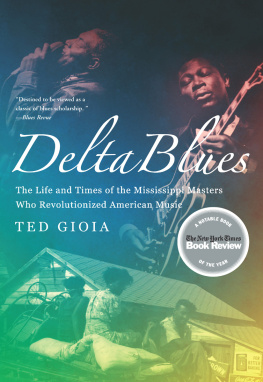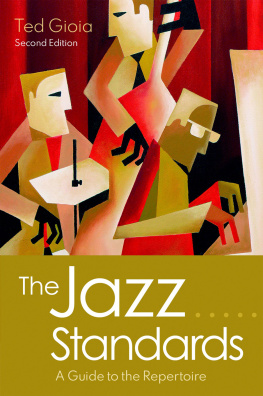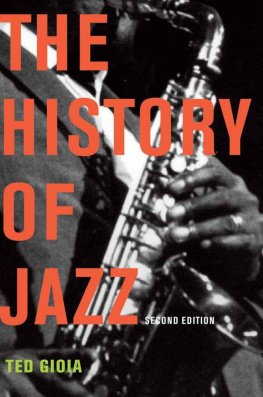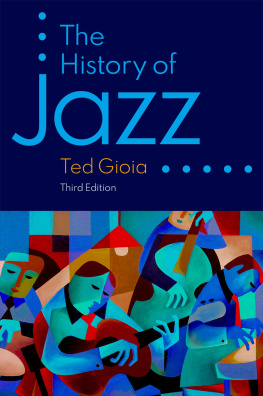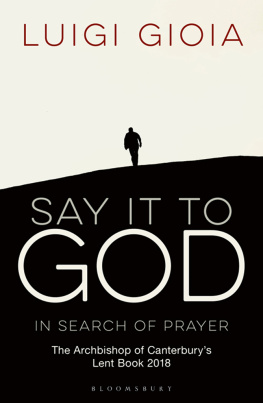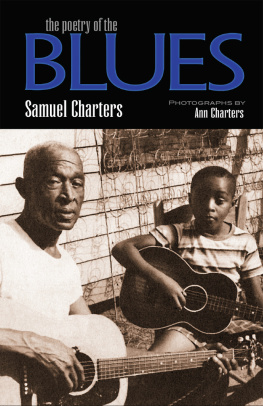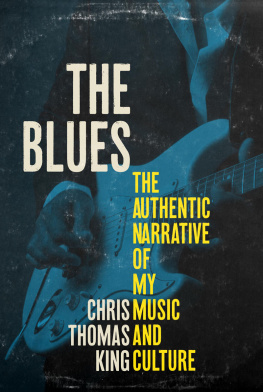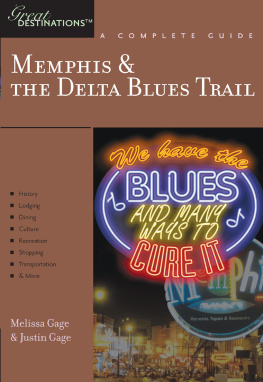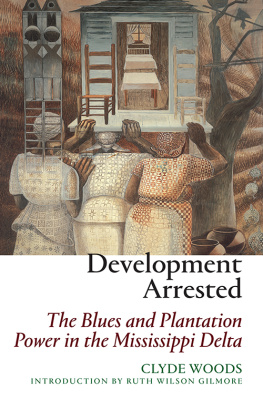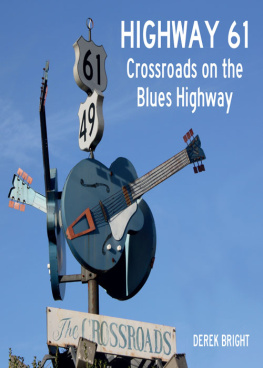Ted Gioia - Delta Blues
Here you can read online Ted Gioia - Delta Blues full text of the book (entire story) in english for free. Download pdf and epub, get meaning, cover and reviews about this ebook. year: 2008, publisher: W.W & Norton, genre: Religion. Description of the work, (preface) as well as reviews are available. Best literature library LitArk.com created for fans of good reading and offers a wide selection of genres:
Romance novel
Science fiction
Adventure
Detective
Science
History
Home and family
Prose
Art
Politics
Computer
Non-fiction
Religion
Business
Children
Humor
Choose a favorite category and find really read worthwhile books. Enjoy immersion in the world of imagination, feel the emotions of the characters or learn something new for yourself, make an fascinating discovery.
Delta Blues: summary, description and annotation
We offer to read an annotation, description, summary or preface (depends on what the author of the book "Delta Blues" wrote himself). If you haven't found the necessary information about the book — write in the comments, we will try to find it.
Delta Blues — read online for free the complete book (whole text) full work
Below is the text of the book, divided by pages. System saving the place of the last page read, allows you to conveniently read the book "Delta Blues" online for free, without having to search again every time where you left off. Put a bookmark, and you can go to the page where you finished reading at any time.
Font size:
Interval:
Bookmark:
The Imperfect Art: Reflections on Jazz and Modern Culture
West Coast Jazz
The History of Jazz
Work Songs
Healing Songs
the life and times of the mississippi masters who revolutionized american music
artwork by Neil Harpe
 W. W. NORTON & COMPANY NEW YORK LONDON
W. W. NORTON & COMPANY NEW YORK LONDON
Copyright 2008 by Ted Gioia
All rights reserved
For information about permission to reproduce selections from this book, write to Permissions, W. W. Norton & Company, Inc., 500 Fifth Avenue, New York, NY 10110
Production manager: Julia Druskin
Library of Congress Cataloging-in-Publication Data
Gioia, Ted.
Delta blues / Ted Gioia; artwork by Neil Harpe.1st ed.
p. cm.
Includes bibliographical references.
ISBN: 978-0-393-06999-0
1. Blues (Music)MississippiHistory and criticism. I. Title.
ML3521.G56 2008
781.643097624dc22
2008009412
W. W. Norton & Company Inc., 500 Fifth Avenue, New York, N.Y. 10110
www.wwnorton.com
W. W. Norton & Company Ltd., Castle House, 75/76 Wells Street, London W1T 3QT
For my sons, Michael and Thomas
At the age of twenty, I navely believed I had a deep understanding of the blues. Schooled as a modern jazz pianist, I had studied the chord patterns and substitute harmonies, the rhythmic devices, the standard melodic licks and the more convoluted bebop or modal reconfigurations of blues music. I could play the blues in every key and in various time signatures. I even composed my own blues, drawing on the trendiest musical notions of the day.
Yet my knowledge, as I see now in retrospect, began and ended with the structure of the blues. Of its meaning and inner vitality, I understood very little at the time. In a very real sense, I was ignorant of the most essential aspects of the music I was attempting to assimilate and perform.
Only gradually did I come to appreciate the deeper essence of the blues. The process took place so slowly that I was often only dimly aware of how my perspectives and preconceptions were being transformed. But in time I found myself listening to the same blues music I had heard in my youth with much different ears, and certainly no longer with the glib assurance that I had plumbed its depths. On the contrary, the music now seemed multi layered, otherworldly, elusive. I sensed a richness to these songs, especially the older blues from the Delta tradition, that I had missed before.
Of course, the music itself had not changed during the intervening years, but I had altered considerably. Partly, this newfound appreciation stemmed from (I would like to think) a growing maturity on my part. But equally my attraction to traditional blues was no doubt fueled by my growing dissatisfaction with the overpowering commercialization and commoditization I encountered elsewhere in the music world. Traditional blues stubborn allegiance to its own guiding lights, its resistance to corporate interference, its blissful ignorance of music videos and trendy radio formats, its affirmation of its own inexpressibly rich heritagethese all sharpened my sense of its value.
My research into traditional styles of music during much of the 1990s further stirred my interest and appreciation of early African-American performances styles. At first this research was conducted from afar, but my move to Texas five years ago, after a lifetime mostly spent in California or overseas, gave me an exciting opportunity to study traditional music in the locales where it had once flourished. Here I settled in a neighborhood where Skip James had spent much of the 1930s, and a few miles away from the site of Robert Johnsons final recording session, but also within walking distance of the old Chisholm Trail. After decades of passionate, almost obsessive, interest in modern jazz, I now found many of my most satisfying moments of musical discovery coming from a much different body of work. I researched and wrote on cowboy music, work songs, Native American traditions, and other neglected facets of our nations aural history. But above all, the early blues captivated my imagination, and as I began undertaking research trips into the Mississippi Delta region, I felt myself confronted by what I now felt was perhaps the most influential musical tradition America had produced, yet one still poorly understood and insufficiently appreciated.
All my assumptions about music now seemed under attack and constant revision. After several decades of playing the piano, I began learning the traditional instruments of the Delta. I returned to the harmonica, an instrument I had played with enthusiasm in my teens. On a Delta trip, I acquired a diddley bow, the one-string instrument that had been the starting point for many blues guitarists, and began learning how to play it with a knifequite a change, and challenge, after years of having the eighty-eight notes of the piano keyboard at my disposal. I next returned to the guitar, an instrument I had hardly picked up since I was sixteen years old, and taught myself how to read tablature notation. I studied the transcriptions of Delta blues guitar recordings, and also began developing blues figures and patterns of my own, inspired by the music of the masters of the idiom. To some extent, I felt like a child again, discovering music for the first time.
In this book, I have tried to take an expansive view of the Delta tradition, not only focusing on the musicians native to the region, but also pausing to explore the careers of those who lived in close vicinity to the Delta, and thus absorbed its influences, or who resided in the Delta for shorter or longer periods, and brought the experiences of these years to other parts of the world. This is a rich and complex story. As the careers of Muddy Waters, Howlin Wolf, John Lee Hooker, and B.B. King make clear, the sounds of the Delta have traveled far over the decades, impacting other styles of music, and changing the sonic landscape of our times. These far-reaching reverberations are, I believe, a proper part of my account of the Delta blues. But I also wanted to take time to focus on the almost forgotten figures, large if little known talents such as Geeshie Wiley or Kid Bailey or Mattie May Thomas and others, who might have developed into well known stars, but whose brilliance is obscured because they recorded so little and their biographies are so sketchy. My hope is that a far-reaching study of this sort will inspire readers to open up their ears to riches from the Delta heritage that they may have previously missed or ignored.
And, as always has been the case for me, researching and writing gave me a grand excuse to knock on doors, meet people, and initiate conversations. The resulting dialogues are often referred to in the following pages, but this book gives only the barest indication of the full scope of these encounters. My debts in this regard are many, especially since my studies were not solitary ones, but enriched by daily exchanges with many people. My acknowledgments are due, first and foremost, to the blues researchers who made the pioneering field trips into the Delta when I was just a youngster. Almost without exception, these individuals took an interest in my project, and were generous in sharing their expertise and ideas, or in reviewing sections of my book and offering their feedback. David Evans, who began his fieldwork in the Delta, in the mid-1960s, responded graciously to my frequent queries and provided invaluable advice at many points during my work on this book. Gayle Dean Wardlow, a native Mississippian who has been researching this music for more than forty years, also gave generously of his time and firsthand knowledge. Mack McCormick, another indefatigable researcher, is often said to be reclusive and unapproachable, but I found him extremely helpful and a great repository of insights and experiences. My several encounters with him left me all the more saddened that so few of his writings have been publisheda great loss to blues lovers and future researchers. Stephen Calt, another pioneering blues researcher and incisive writer, helped me out in innumerable ways. Steve and I exchanged several hundred e-mails during the period I was writing this workthe correspondence would be longer than the book itselfand his frank, penetrating thoughts on the Delta tradition frequently forced me to reexamine my own assumptions and attitudes.
Font size:
Interval:
Bookmark:
Similar books «Delta Blues»
Look at similar books to Delta Blues. We have selected literature similar in name and meaning in the hope of providing readers with more options to find new, interesting, not yet read works.
Discussion, reviews of the book Delta Blues and just readers' own opinions. Leave your comments, write what you think about the work, its meaning or the main characters. Specify what exactly you liked and what you didn't like, and why you think so.

